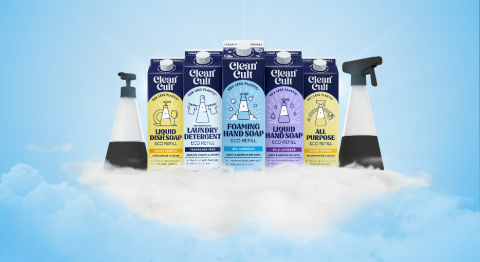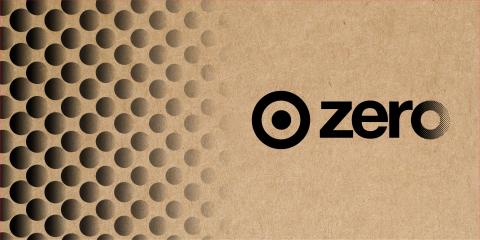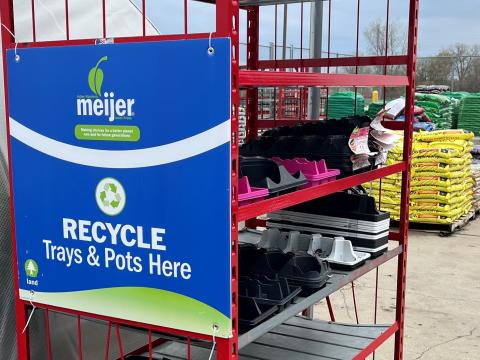Food Retailers Increase Waste Reduction Efforts

Prioritizing sustainability is on the increase. This was one of the top trends that Jack Sinclair, CEO of Phoenix-based Sprouts Farmers Market, discussed during NRF’s Big Show this past January in New York.
“I think the pandemic had some role to play in this — people are getting more interested in it in the U.S.,” Sinclair said. “We do good by doing good. That’s something to be encouraging across the industry. How can you be much more effective at being good for your customer, good for the families of your customer, good for your communities and good for the planet at the same time? There is a win-win in that space that can drive the terms as well as a more efficient planet.”
Other grocers agree. For instance, more food retailers are realizing the importance of environmental sustainability initiatives as they increase efforts to reduce waste through recycling and composting programs, as well as implementing packaging materials that have a lower impact on the planet.
Walmart Joins the Cleancult
Only about 5% of 51 million tons of U.S. plastic waste was recycled in 2021, according to a study from global environmental advocacy group Greenpeace. This is why Walmart Inc. is betting big on a zero-plastic waste-cleaning startup called Cleancult.
On a mission to reduce single-use plastic waste, Cleancult is known as a disruptor to the household cleaning industry by packaging soaps and detergents in paper-based cartons.
The company revealed on March 2 its largest retail expansion to date into more than 3,000 Walmart stores nationwide, bringing its first-to-market paper-based refill cartons to even more customers through its partnership with the retail giant.
“Cleancult’s commitment to plastic elimination is the kind of innovation we need at scale to collectively reduce plastic use and become more regenerative,” says Jennifer R. Jackson, SVP, household essentials at Bentonville, Ark.-based Walmart U.S.
A digitally native company founded in 2019, Cleancult’s refillable model transitions seamlessly to brick and mortar due to a comprehensive refill system: Instead of repeatedly buying single-use plastic bottles, consumers can purchase a refillable glass dispenser that doesn’t need to be replaced, along with soap refills in recyclable paper-based cartons to reduce the never-ending cycle of plastic consumption when it comes to conventional cleaning products. According to Cleancult, this simple household swap reduces plastic waste created from typical home-cleaning routines by 90% and can have an enormous planetary impact. By making the switch to a system like Cleancult’s recyclable paper-based carton model, consumers can eliminate more than 330 million pounds of plastic from entering the environment each year.
The brand's retail presence has grown by an impressive 7,500% since 2019.
Kicking off with its best-selling hand soap and dish soap, Cleancult products will roll out in-store and online at Walmart over the coming months, with additional cleaning categories to follow, totaling more than 3,100 points of distribution. In tandem with the Walmart launch, Cleancult is unveiling a fresh new look and feel to its brand, debuting a premium packaging design and fresh scent portfolio. The company will incorporate new and improved formulas over the next few months.
Additionally, Walmart and its Sam’s Club division recently teamed with TerraCycle to recycle plastic food and beverage packaging.
Through the Walmart Hub Recycling Program, consumers can bring all brands of coffee capsules, water filters, plastic bottles, soft plastic food packaging and rigid plastic packaging to designated recycling hubs positioned outside of participating Walmart Supercenters in Springdale, Ark., and Broken Arrow, Okla., as well as at the Fayetteville, Ark., Sam’s Club.
“Plastic food and beverage packaging is an often-overlooked waste stream that plays an important role in our daily lives,” says Tom Szaky, founder and CEO of Trenton, N.J.-based TerraCycle. “Most are not aware that soft plastic food packaging, for instance, is usually multilayered and consists of multiple different materials, excluding it from curbside recycling. That’s why this waste stream, along with water filters, plastic bottles, coffee capsules and rigid plastic packaging, was included in the Walmart Hub Recycling Program.”
When a hub station is full, TerraCycle picks up and transports the waste to regional material recovery facilities, where the waste is sorted by material type and recycled into raw materials that can be used to make new products like playgrounds and park benches.

Target Zero
Also responding to greater customer interest in products that help reduce waste, Target Corp. launched the Target Zero initiative last year to elevate sustainable brands. Target Zero icons are found in stores and through a dedicated online experience identifying products and packaging across the retailer’s assortment that are designed to be refillable, reusable or compostable; made from recycled content; or made from materials that reduce plastic use.
“Target Zero helps [guests] make informed decisions about what they purchase and advances a collective impact across our brand partners, our product shelves, and within our homes and communities,” points out Amanda Nusz, SVP of corporate responsibility and president of Minneapolis-based Target Foundation.
Hundreds of new and existing products from brands across Target’s beauty, personal care and household essentials categories were among the first in the Target Zero collection. One example is an exclusive-to-Target packaging innovation from the Durhan, N.C.-based Burt’s Bees lip balm brand that uses metal tins that are recyclable and made without single-use plastics. Select products from San Francisco-based Grove Co. and Target private brand Everspring are now also part of the collection.

Meijer’s Roots in Recycling
Meanwhile, Meijer Inc. is encouraging its customers to bring their plastic flower pots and trays — regardless of the plants or flowers were originally purchased — to any Meijer Garden Center to be recycled.
In addition to keeping plastic out of landfills, recycled plastic uses less energy and emits less carbon in its production compared with virgin plastic. In fact, the Washington, D.C.-based Association of Plastic Recyclers reports that recycled plastic reduces total energy consumption by 88% and cuts emissions by 71% for polypropylene, which is the plastic used to manufacture plant and flower pots and trays.
“We integrate environmental sustainability into our daily operations because it makes good business sense and aligns with our values of caring about the communities we serve,” says Jeff Lynch, garden center merchant for Grand Rapids, Mich.-based Meijer. “Gardening is an activity that supports a natural environment where plants can flourish, but unfortunately, the majority are sold in plastic gardening containers. By working with our suppliers and customers to recycle those containers, it’s our way of being more environmentally friendly and moving the industry forward.”






